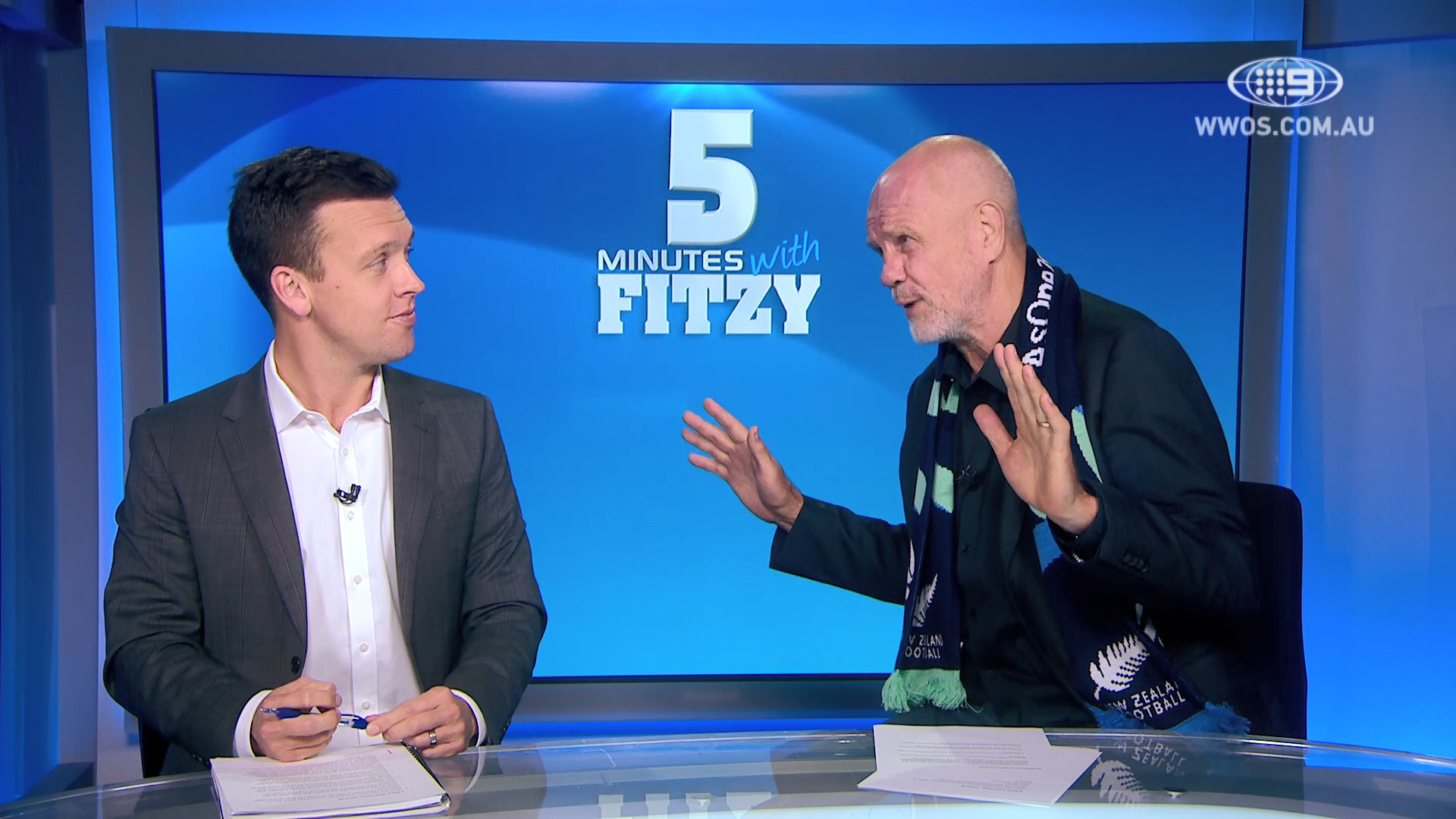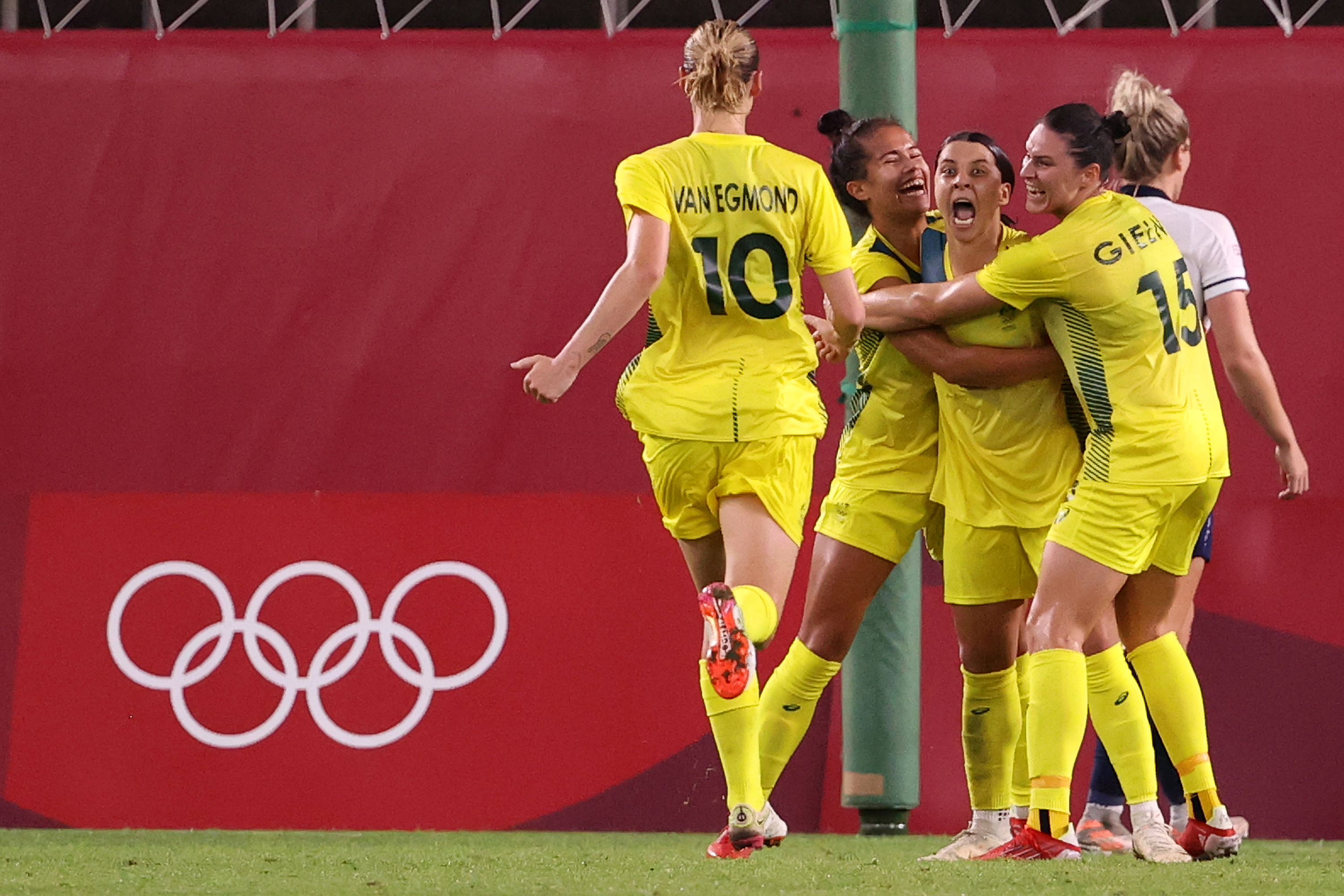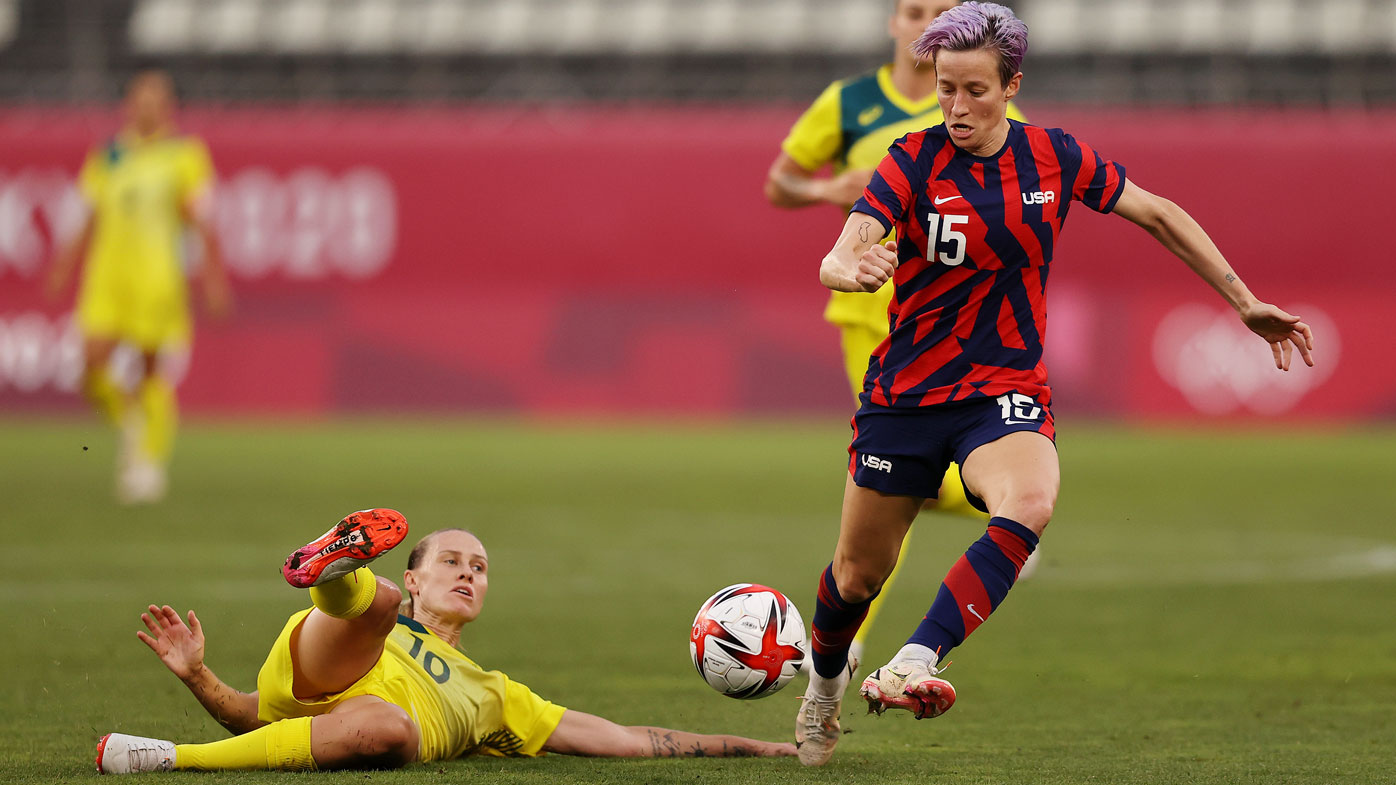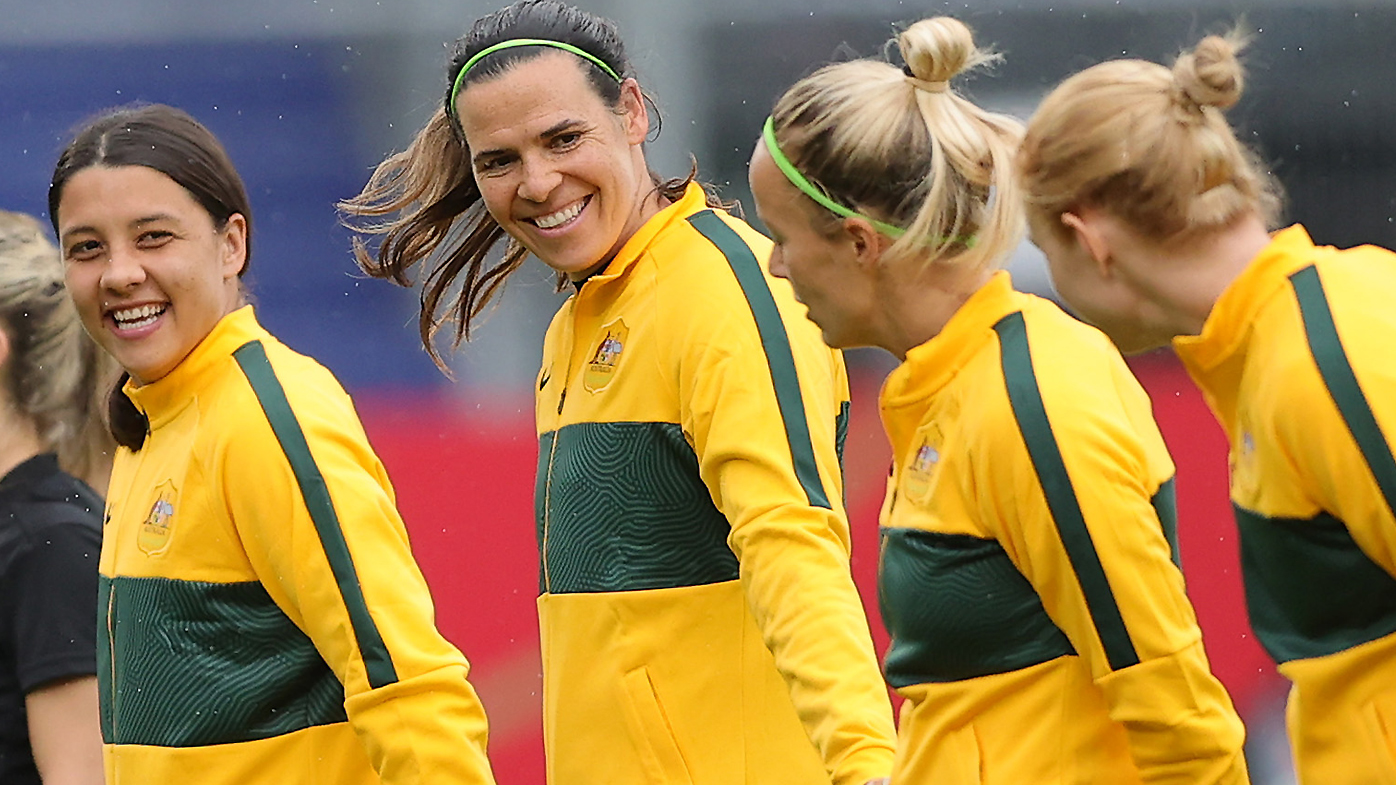It’s official; Australia has a Matildas obsession.
With an average television audience of 1.87 million tuning in to watch their semi-final clash against Sweden at the Tokyo Games, the team broke new ground, setting the record for the largest audience for a women’s team sport in Australian TV history.
It’s not hard to see why.
From humble beginnings, with the team first known as the ‘Female Socceroos’, through a boom period in the mid 2010s, the Matildas have revolutionised themselves into an institution of world football.
Marked by a free-flowing attacking flair led by showtime spearhead Sam Kerr, it’s the Matildas’ moreish brand of play that’s increasingly making TV sets across the nation so hard to turn away from.
While they left Tokyo empty-handed, a fourth-place finish went a long way in overcoming an unprecedented pre-tournament slump, and without question shook the monkey off Kerr’s back in front of goal.
It’s put the Matildas firmly back in the ring for arguably their biggest test in the team’s history – the 2023 Women’s FIFA World Cup to be held in Australia.
And if there’s one point to first address, it must be a notable lapse in defensive nous that underpinned the Matildas’ Olympic campaign.
Trounced 4-2 by Sweden in a group stage run-over and coughing up four goals to Team USA in the bronze medal play-off, defence is an issue new coach Tony Gustavsson can’t afford to ignore.
And according to the Matildas’ first-ever captain Julie Dolan, if the Matildas want to make a statement on home soil come 2023, consistency at the back is part and parcel of the deal.
“Having a look at the games in the Olympics, the girls have set a new benchmark that’s not to be argued. But having said that, there were inconsistencies,” Dolan told Wide World of Sports.
“Defence was one of those areas that was pointed out. To compete in the top five, you have to be a lot more consistent.
“Leading up to the World Cup, this is in our backyard. They’re not going to waste an opportunity to work on these things and I think it’s been a good opportunity to see where they need to pick up.”
From their past 11 games, the Matildas only managed two wins – a stat punters wouldn’t readily attribute to Australia’s women. But Dolan says it’s a necessary period of soul-searching after years of meteoric improvement.
“I think when we’re consistently coming up against these highly ranked teams, the more we’re going to see our game pulled apart, that’s the reality of it,” Dolan said.

“That’s why the Matildas needed to go through this phase, to find out where they actually were and to go back, do their homework and get much better.”
Dolan was buoyed by the prospect of the Matildas’ up-and-coming crop of talent. Teen winger Mary Fowler was an undoubted stand-out in Japan, as was striker Kyra Coonie-Cross.
Nurturing their development into 2023 must be a top priority for Gustavsson and his staff, says Dolan.
“It was a great opportunity to welcome Kyra Coonie-Cross and Mary Fowler to get on the park,” she said.
“This is the world stage, these are the top players in the world, so to compete well in that arena, says a lot about how far ahead they are with their games. Hopefully, there is more waiting in the wings that can just fit into those spots into the Matildas team.”
Underpinning the Matildas’ next chapter is a new four-year, multi-million dollar major sponsorship deal struck with the Commonwealth Bank of Australia.
Dolan was optimistic over the opportunities for development that would bring, not just for the Matildas, but for women’s football across Australia.
“The Commonwealth Bank sponsorship is huge. In any major investment in sport, such as this, has significant consequences for the game,” she said.
“We’ll see a lot more media events, a lot more input into the women’s game itself, so that it will reach more places, more places and it gives everybody a chance to see what’s coming up and to know what’s on the stage.”



